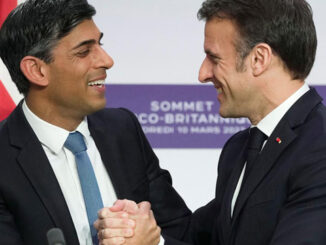Karnataka, which goes to the polls on May 10, is a high-stakes state for both the BJP and the Congress. It’s the first major Assembly battle of the year and the two parties are keen to win it with an eye on the 2024 General Election. The BJP, which came to power in Karnataka in 2019 after the collapse of the Congress-Janata Dal (Secular) government, has promised to implement the Uniform Civil Code (UCC) and the National Register of Citizens (NRC). The party claims that the UCC would ensure gender justice and equal rights for Muslim women. This is significant for a state where Muslims account for around 13 per cent of the electorate. Even as the BJP government’s decision to scrap 4 per cent OBC quota for Muslims has been challenged in the Supreme Court, the party is keen to split the community vote — to the detriment of its main rivals.
What’s common between the election manifestos of the BJP and the Congress is a slew of freebies. Notwithstanding PM Modi’s avowed disdain for the ‘revdi culture,’ the BJP has promised to provide three cooking gas cylinders free of cost to all BPL families — one each during the months of Yugadi, Ganesh Chaturthi and Diwali. The party has also announced that it will launch the ‘Poshane’ scheme under which each BPL household will get half a litre of Nandini milk every day and 5 kg of Sri Anna siri dhanya (millets) through monthly ration kits. The Congress’ promises include free of cost travel for women in government-run buses; monthly assistance of Rs 2,000 for each woman head of a family; 200 units of free of cost electricity to all households; and a dole for unemployed graduates and diploma holders in the age group of 18-25 years. The manifesto of the JD (Secular) caters primarily to the farming community and women self-help groups.
With religion being an emotive subject in Karnataka, the BJP has promised to create a state wing against religious fundamentalism and terror, while the Congress has named the Sangh Parivar organization Bajrang Dal vowing ‘firm and decisive action against individuals and organizations spreading hatred among communities.’ All in all, an intriguing contest is on the cards, with polarization and populism being the key factors.
(Tribune, India)





Be the first to comment